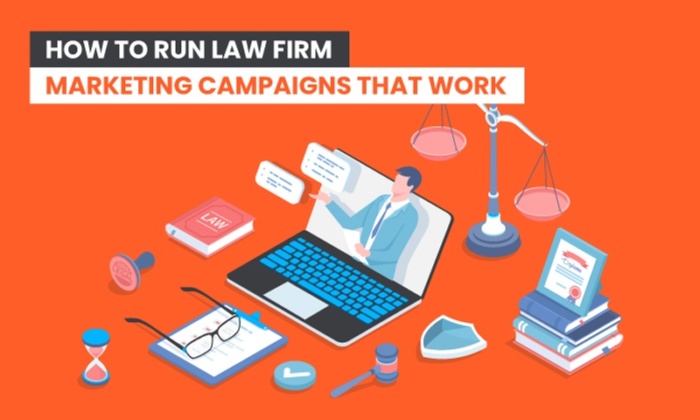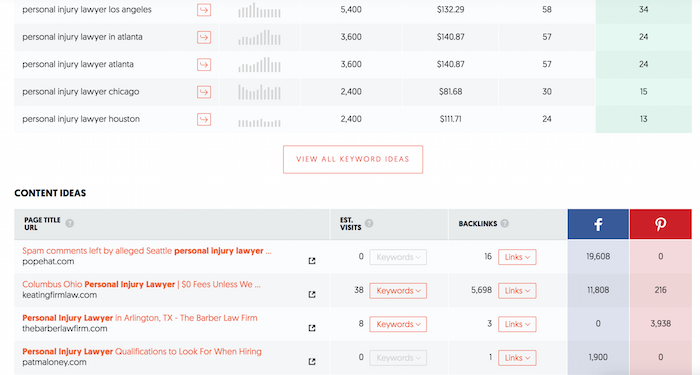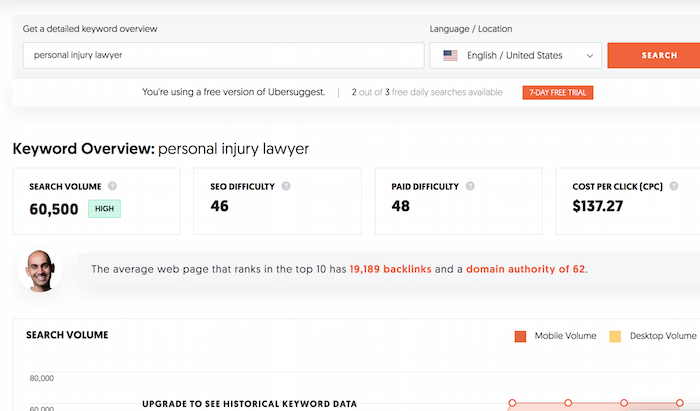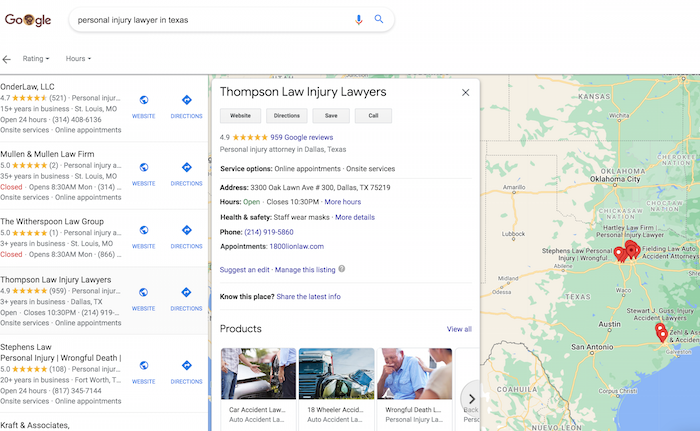
Law firm marketing is essential to attracting clients and sharing what your law practice offers. It can also set you apart from other practices in your area.
The goals and the practical details of law firm marketing are not as obvious and straightforward as marketing for other brands.
Rather than pushing a product or service upon them, you want to draw people to your law firm. It’s about educating the public as a whole, and your client demographic in particular, about what you can do and why you’re better than other firms.
A pull, rather than push, strategy is referred to as inbound marketing. This approach allows you to be in the minds of your clients when they need you.
Below, I’ll cover several inbound marketing methods, as well as some traditional marketing strategies for your law firm. Whatever combination you choose, it’s important to remember to take the ethical, honest, and straightforward path to keep yourself out of hot water.
Legal Restraints in Law Firm Marketing
We’ve all seen the examples of lawyers using marketing efforts that are slimy or outright illegal. Before we dive too deeply into what you should do, let’s talk about what you shouldn’t do.
Hopefully, as a legal expert, you’re already familiar with these. However, you might not know exactly how these restraints impact your marketing plans.
Laws Pertinent to Lawyers
As you create your law firm marketing strategy, get clarity on local and state laws about what you can and can’t do. Some states have very specific rules about legal marketing, including whether you can make comparative statements, such as “We’re the best!” and how you need to mark your marketing collateral as advertising.
Keep yourself out of hot water by checking with your state bar association for specifics in the location and field you practice.
Laws and Ethics Marketing in General
Keep in mind there are marketing laws and regulations relevant to all types of organizations. Finding ethical ways to build your prospect lists, respecting privacy, complying with GDPR, and more can help keep you out of legal entanglements. They’re also just the right thing to do.
Small Vs. Large Firms Strategies Will Differ
Before we get the specifics, let’s talk about how law firm size can impact your strategies. The approaches we discuss can be customized to either size, but it’s important to think through the differences as you consider your goals.
Sales Cycle
If you’re a solo firm, your sales cycle may be longer than a larger firm with dozens of attorneys. This could be a factor of your own bandwidth because you don’t have time to reach out to make those touchpoints more often.
Your specialty could also impact the sales cycle length. A larger firm can find out what a client needs and then shuttle them to that department, but a smaller firm may spend more time educating and waiting for specific legal issues to arise.
High Competition
If you’re a small firm in a big area, you may be facing a high level of competition. Are there a lot of other law firms nearby offering similar services? The bigger firms may seem like they have the upper hand because they can be everywhere.
Smaller firms should focus on getting real about who you are and what you offer. That will help you set yourself apart as THE attorney who provides the best service in the area.
9 Tips for Creating an Effective Law Firm Marketing Strategy
We’ve talked about what you shouldn’t do, and possible limitations. Let’s talk about strategies you can employ to up your law firm marketing.
1. Research Your Competition
Sometimes one of the best ways to clarify what’s going on in your field is to see what others are doing.
Dive in and see what is working (and what’s not) for other firms in your field and your area. Don’t be afraid to pick apart their strategy and figure out what you can do to emulate it.
As you research, look at law firms that cater to the same target market you do and do the same kind of work you do. How do they speak to client needs? Is there anything that feels incomplete, inadequate, or insincere?
Use Ubersuggest to get content ideas, find keywords you should target, and perform a competitive analysis.

Here’s an example of the data you can analyze about the search term “personal injury lawyer.”
2. Focus on Branding
When you have a long sales cycle, branding is important. Setting yourself apart in all your images, copy, videos, and more can help people follow you as you continue to reach out to them through various touchpoints.
Strong branding should share your narrative everywhere. Everything should remind people of what makes you awesome, including your logos, social media posts, website copy, and the images you use.
3. Create Content That Educates
Your clients are probably looking for information before they look for a lawyer. They may be in a stressful situation or have questions about the next step in their lives.
They head to Google and type in their question, and scroll for answers. They need someone with established credibility and expertise to share information with them.
For example, they might search for “do I need a personal injury lawyer?” or “what should I look for in a divorce lawyer?” or “what paperwork do I need for an estate plan?”
Provide high-quality content that answers those questions to build trust.
4. Ensure Your Website Is SEO-Optimized
Search engine optimization is the key to pulling traffic to your site. Search engine optimization, or SEO, is the process of helping Google and other search engines find your content when people are looking for information.
There are a number of steps you can take to improve your SEO, but you can start with our free SEO analyzer.
Once you’ve got a handle on how to improve your website, continue to create great content to signal to Google you’ve got relevant information your target market is interested in.
5. Don’t Be Afraid of Google Ads
Now that you’ve got some great inbound marketing tactics set up, such as content creation, let’s talk for a moment about Google ads.
Google pay-per-click or PPC ads can be expensive for lawyers. The competition is tough, so the CPC, or cost per click, is pretty high.

As you can see above, vague terms cost a lot per click.
You limit the cost by narrowing your audience. Instead of targeting everyone everywhere, focus on buyer intent, specific demographics, or a geographical area. This will reduce the number of people who see your ad, potentially lowering the cost.
You can also set a monthly cost cap to ensure your ads stay within your budget.
Ensure the content on your ad’s landing page is high quality, answers your client’s questions, and provides the information they need to take the next step. Include an opt-in so you can continue to track those high-cost leads. Here are some tips for effective opt-ins.
6. Claim Your Google My Business Account
Have you claimed your Google My Business account? If you have an office, you probably have a listing already.

Claiming your account allows you to control the listing. If you rely on brick and mortar, in-person traffic, that’s even more reason to ensure the details are accurate and optimized. Make sure your hours, location, phone number, and website are up to date. You can also monitor and respond to Google reviews.
7. Establish Trust With Customer Reviews
Testimonials from current clients can help potential clients feel confident about your services. You can share videos, case studies, and more on your website. Then, share those same reviews and testimonials on social media and in case studies. This establishes trust, which is crucial in the legal field.
Add collecting reviews to your workflow by asking satisfied clients to share their feedback as you are wrapping up with them, or as part of your follow up after the case is resolved
Make sure to check in with your state regulations to ensure you are gathering and sharing reviews with your clientele legally.
8. Leverage Video Marketing
Video is all the rage in digital marketing, but it’s especially important for relationship-based businesses such as your law firm. Your success comes down to trust. People have to be willing to come to you with their problem, and then entrust you with the legal process. To be successful, you need clients to connect with you on a personal level.
Video marketing can help break the ice early and help your clients feel more comfortable with the people behind the brand, even before you meet.
You can interview or chat with former clients, gathering reviews as we discussed above. You can tour your office space and introduce prospects to your employees. Clients in need of legal services are likely in the midst of a very difficult time. Video can help build confidence early on.
9. Try Traditional Marketing Strategies
Inbound and digital marketing aren’t the only way to reach prospective clients.
If you have a local audience, consider billboards, direct mailers, print ads, and television spots. On average, people need to see your brand a dozen times or so before they convert. These traditional methods help increase your reach and diversify where prospective clients see you.
Want to make sure your traditional marketing strategies are working? Track the effectiveness of print or physical marketing by using a designated:
- URL or unique domain
- QR code
- offer they have to mention in person
- hashtag
- keyword phrase
- phone number
Also, make sure to ask new clients how they heard about you. They likely saw your name in a number of locations, but this direct question can help you understand what’s bringing them through the door.
Law Firm Marketing Frequently Asked Questions
Why do law firms need marketing?
Finding more clients is a struggle for many firms. With strategic marketing efforts, you can reach your target market before they need help, so your firm is top of mind when they face a legal challenge.
Can law firms use Google Ads?
Yes, Google Ads can be an effective way to connect with clients looking for legal help. Legal keywords can be expensive, so target more specific search phrases and ensure your website is full of educational content that can help you connect with prime clients.
What’s the best way to advertise my law firm?
Because law firms often rely on a long sales cycle and on trust, a content marketing strategy is incredibly effective. Focus on creating educational articles and content for your target market to build trust so they turn to you when they face a legal challenge.
Law Firm Marketing Conclusion
Law firm marketing might feel like the last thing you have time for, with everything else on your plate. However, without a solid marketing strategy, your sales funnel can quickly dry up, leaving you without clients to serve.
By focusing on your branding, dialing into your target market, and delivering content your clients truly need, you can build trust and keep the business flowing in.
What’s the next strategy you’re going to employ to boost your law firm marketing?

See How My Agency Can Drive Massive Amounts of Traffic to Your Website
- SEO – unlock massive amounts of SEO traffic. See real results.
- Content Marketing – our team creates epic content that will get shared, get links, and attract traffic.
- Paid Media – effective paid strategies with clear ROI.



